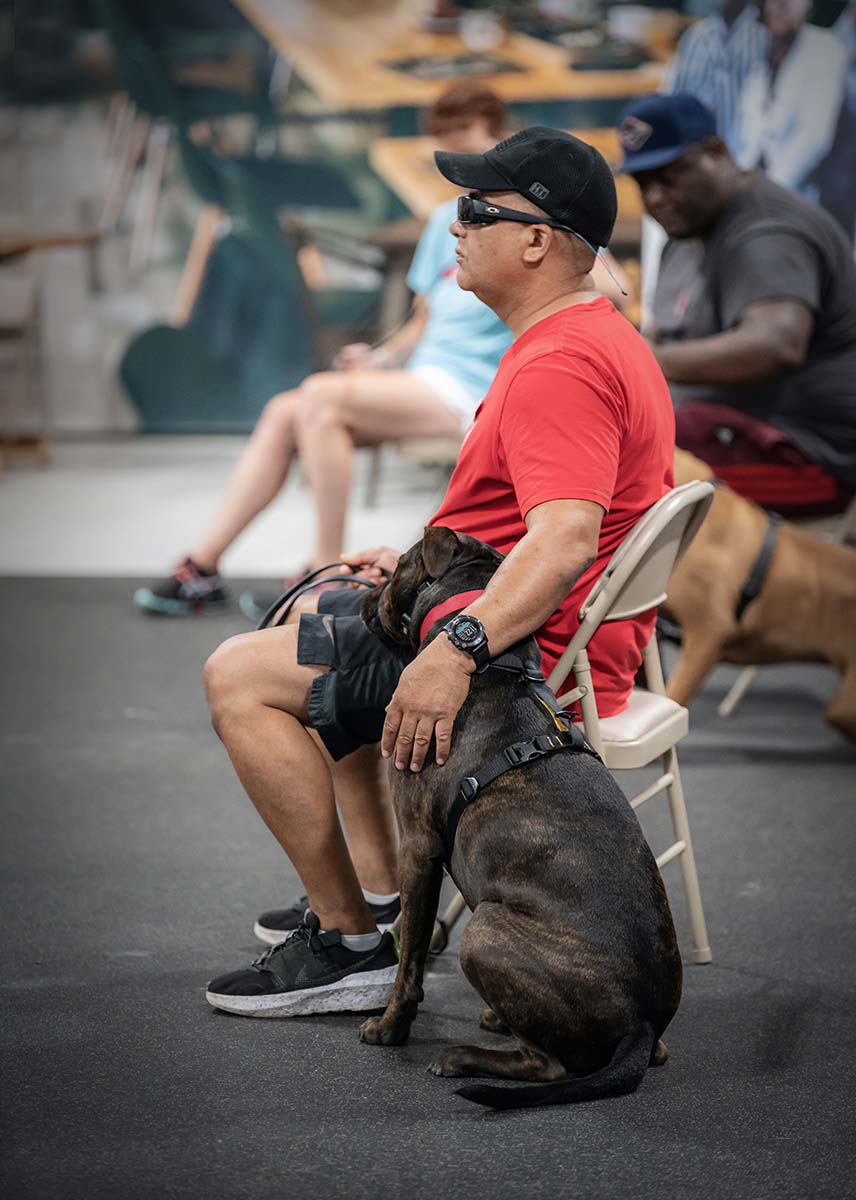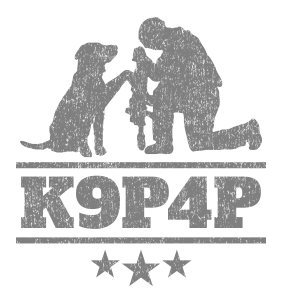Service Dogs
Foster Independence, Heal Hearts and Save Lives
Service Dogs Are Powerful Allies in the Battle Against Veteran Suicide
Suicide is a major public health problem, specifically among U.S. veterans. Service dogs have emerged as powerful allies in the battle against veteran suicide and Post-Traumatic Stress Disorder (PTSD). These remarkable animals offer more than just companionship; they provide a lifeline to veterans struggling with the invisible wounds of war. With their unique abilities and unwavering loyalty, service dogs play a pivotal role in improving the mental health and overall well-being of those who have served their country.


A Lifeline
In the fight against veteran suicide, service dogs act as vital early-warning systems. They detect and respond to signs of emotional distress. They can identify subtle changes in behavior, heart rate, or scent that may indicate a veteran is struggling. These dogs intervene instinctively, alerting their handlers and providing a grounding presence that helps disrupt negative spirals and bring them back to the present moment. Their unwavering persistence offers veterans a critical lifeline, proving to be life-saving in moments of greatest need.
Veteran Suicide & PTSD
The prevalence of veteran suicide and PTSD is a grave concern that has garnered increased attention in recent years. Many veterans returning from combat zones experience psychological distress, often triggered by traumatic events witnessed during their service. This emotional turmoil can lead to severe cases of PTSD, affecting their daily lives, relationships, and overall mental health. Additionally, the feeling of isolation and detachment further exacerbates their struggles, sometimes culminating in thoughts of suicide.
Service Dog Training
Service Dogs are specially trained to provide a wide range of support tailored to the needs of veterans with PTSD. These dogs undergo rigorous training to recognize signs of distress and anxiety in their handlers. When a veteran starts to experience heightened stress levels or anxiety, the dog can respond by offering physical comforts, such as nuzzling or licking, grounding the individual and helping them regain control of their emotions.
The Quest for Improved Quality of Life
Service Dogs
- For individuals with mobility challenges, these dogs become walking aids, enabling newfound freedom and autonomy.
- Those with visual impairments rely on guide dogs to navigate the world with confidence.
- While those with hearing impairments find comfort and safety through their alert dogs’ ability to notify them of important sounds.
Perhaps even more profound is the role that service dogs play in supporting individuals with invisible disabilities, such as post-traumatic stress disorder (PTSD), anxiety, and depression. These dogs are trained to detect and respond to changes in their partners’ emotional and physiological states, offering a soothing presence and distraction during moments of distress. The unconditional love and nonjudgmental companionship of a service dog can significantly reduce feelings of isolation and provide a bridge to social interactions.
Transformative Impact on Lives
The impact of a service dog extends far beyond the physical assistance they provide. These extraordinary animals are catalysts for emotional healing and personal growth. For veterans struggling with the scars of war, service dogs offer solace, a listening ear, and a reason to step back into a world that may have seemed daunting. Children with autism find in their service dogs steadfast friends who can ease sensory overload and offer a reassuring constant presence.
Service Dogs Restore Independence, a Sense of Purpose & Dignity
Service dogs also empower individuals to reclaim their independence, boosting self-esteem and self-reliance. Simple tasks that were once daunting or impossible become achievable with the steadfast support of a loyal companion. The sense of purpose and responsibility that comes with caring for a service dog can have a profound impact on mental well-being, providing structure and a reason to engage with the world.
Breaking the Cycle of Isolation
Service dogs assist veterans in breaking the cycle of isolation that often accompanies PTSD. They encourage social interactions by acting as conversation starters, drawing attention and curiosity from passersby. This fosters a sense of connection and belonging that can be pivotal in combating the feelings of alienation that many veterans experience. Service dogs provide a reason for veterans to engage with their communities and reestablish a sense of normalcy in their lives.
In a world where companionship transcends the ordinary and reaches the extraordinary, service dogs stand as remarkable examples of unwavering loyalty, dedication, and boundless love.
These canine heroes have evolved from mere pets to invaluable partners, offering profound assistance and companionship to individuals with various disabilities and medical conditions. With their innate ability to understand and respond to human needs, service dogs have become indispensable assets, reshaping lives in ways that are both tangible and deeply emotional.
Renewed Hope for Family & Friends
When a service dog enters a veteran’s life, the ripple effects of improved mental health and emotional stability spread to those around them.
The impact of service dogs on combating veteran suicide and PTSD extends beyond the individual veteran to their families and communities. Families witness the transformation of their loved ones and experience a renewed sense of hope. Communities benefit from the increased awareness of veteran mental health issues, fostering an environment of support and understanding.
Bridging the Gap

The Unconditional Companionship Offered by a Service Dog is the Cornerstone of Their Therapeutic Impact.
The human-animal bond is a powerful force that promotes emotional healing. Veterans with PTSD often grapple with trust issues and difficulty forming close relationships. Service dogs bridge this gap, offering unwavering loyalty and companionship without judgment. This connection provides veterans with a safe space to express their feelings and fears, reducing the emotional burden they carry.
Service Dog Training
The training of a service dog is an intricate and comprehensive process that requires expert guidance, patience, and dedication.
Dogs are selected for their temperament, intelligence, and willingness to learn. They undergo rigorous training that encompasses obedience, specialized tasks, and socialization to prepare them for the diverse environments they will encounter. Depending on the specific needs of their future partners, service dogs may be trained to perform tasks such as retrieving items, opening doors, pulling wheelchairs, alerting to medical conditions, and providing stability and support.
Challenges & Advocacy
Awareness
While the benefits of service dogs are undeniable, there are challenges that come with their integration into society. Public awareness and understanding of the rights and needs of service dog teams are crucial to ensure a smooth and supportive environment. Educating businesses, schools, and communities about the role of service dogs and the legal protections they enjoy is essential for fostering inclusivity and acceptance.
Time & Cost
Additionally, the cost and time investment associated with training service dogs can be significant. Many organizations rely on charitable donations and volunteers to provide these vital resources to individuals in need. Fundraising efforts, community partnerships, and dedicated trainers play a pivotal role in ensuring that service dogs continue to change lives.
Respect & Support
In conclusion, service dogs embody the epitome of loyalty, devotion, and compassion. Through their extensive training, unwavering companionship, and ability to perform life-altering tasks, these remarkable animals bring light to the lives of those facing challenges. As we celebrate their achievements and potential, let us also strive to create a world that recognizes, respects, and supports the invaluable contributions of these extraordinary four-legged partners.

